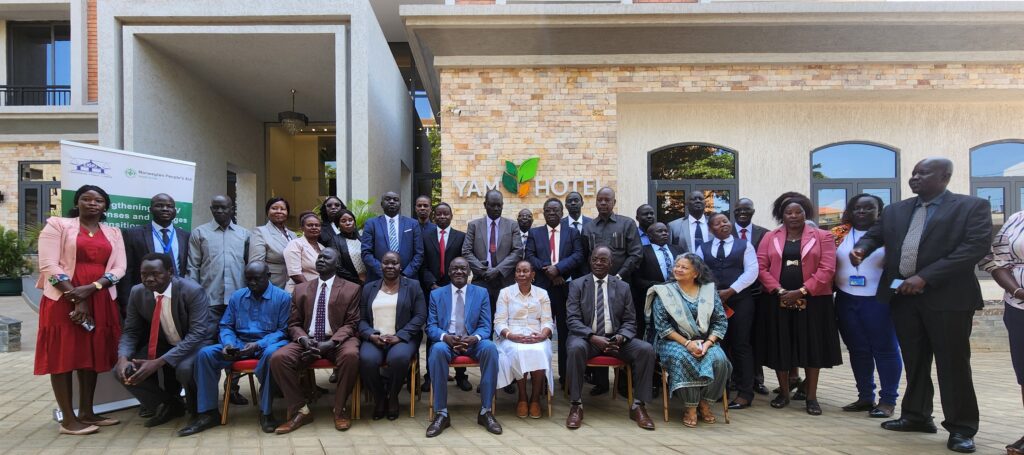The Centre for Inclusive Governance, Peace and Justice (CIGPJ) on Wednesday launched a three-day capacity-building workshop for High Court judges and magistrates on gender-based violence (GBV) case management and transitional justice.
The training, held in Juba, brings together about 30 judicial officers from the capital and several states across the country.
Jackline Nasiwa, executive director of CIGPJ, said the initiative builds on years of engagement with survivors of GBV and conflict-related sexual violence.
“Most survivors want to access justice and legal remedies,” Nasiwa said. “In our peace agreement, Chapter 5 focuses on transitional justice, which includes addressing gender-based violence in conflict settings.”
She said the organization works closely with survivors to ensure their voices are central in justice processes. “We prioritize their needs and demand for justice,” she added.
The training follows previous sessions for judiciary support staff, focusing on survivor-centered case management, confidentiality, and safeguarding victim files. Nasiwa said the goal is to strengthen judicial capacity to deliver justice and uphold the dignity of survivors.
“The judiciary plays a central role in ensuring justice for survivors,” she said. “Equipping judges with knowledge of GBV, its impact, and the trauma survivors endure is crucial.”
One participant noted, “This training is important because judges are the ones who make the final decision on the fate of survivors and their pursuit of justice.”
Judges are being trained to adopt survivor-centered approaches in court proceedings, emphasizing ethics, confidentiality, and victim protection. A key aim is to extend the training beyond Juba, where South Sudan’s only GBV court is currently located, by involving judges from the states.
“We are in a situation of impunity where those who commit these crimes are often at large,” Nasiwa said.
Sheila Keetharuth, senior women’s protection adviser at the United Nations Mission in South Sudan (UNMISS), said the training seeks to strengthen judicial capacity, ensure accountability, and promote survivor-centered justice.
“Survivor-centered justice prioritizes the rights, needs, and agency of survivors, ensuring they are treated with dignity and respect throughout the justice process,” she said. Keetharuth noted that survivors—particularly women, girls, and children born of wartime rape—continue to face stigma, exclusion, and limited access to justice.
Supreme Court Judge Stephen Simon Benjingwa, representing the Chief Justice, urged his colleagues to embrace ongoing professional development.
“It is the policy of the judiciary’s new leadership that judges must continue learning throughout their careers,” he said. “There are new crimes emerging, and continuous education is essential.”
He emphasized the importance of professionalism, discipline, and language proficiency. “Let us learn English,” he said. “It is the official language of the country.”




